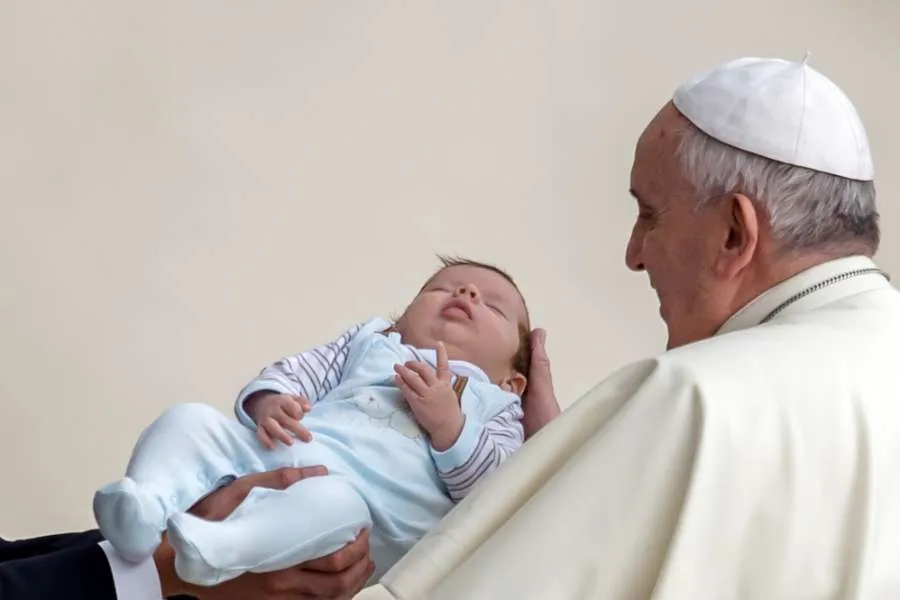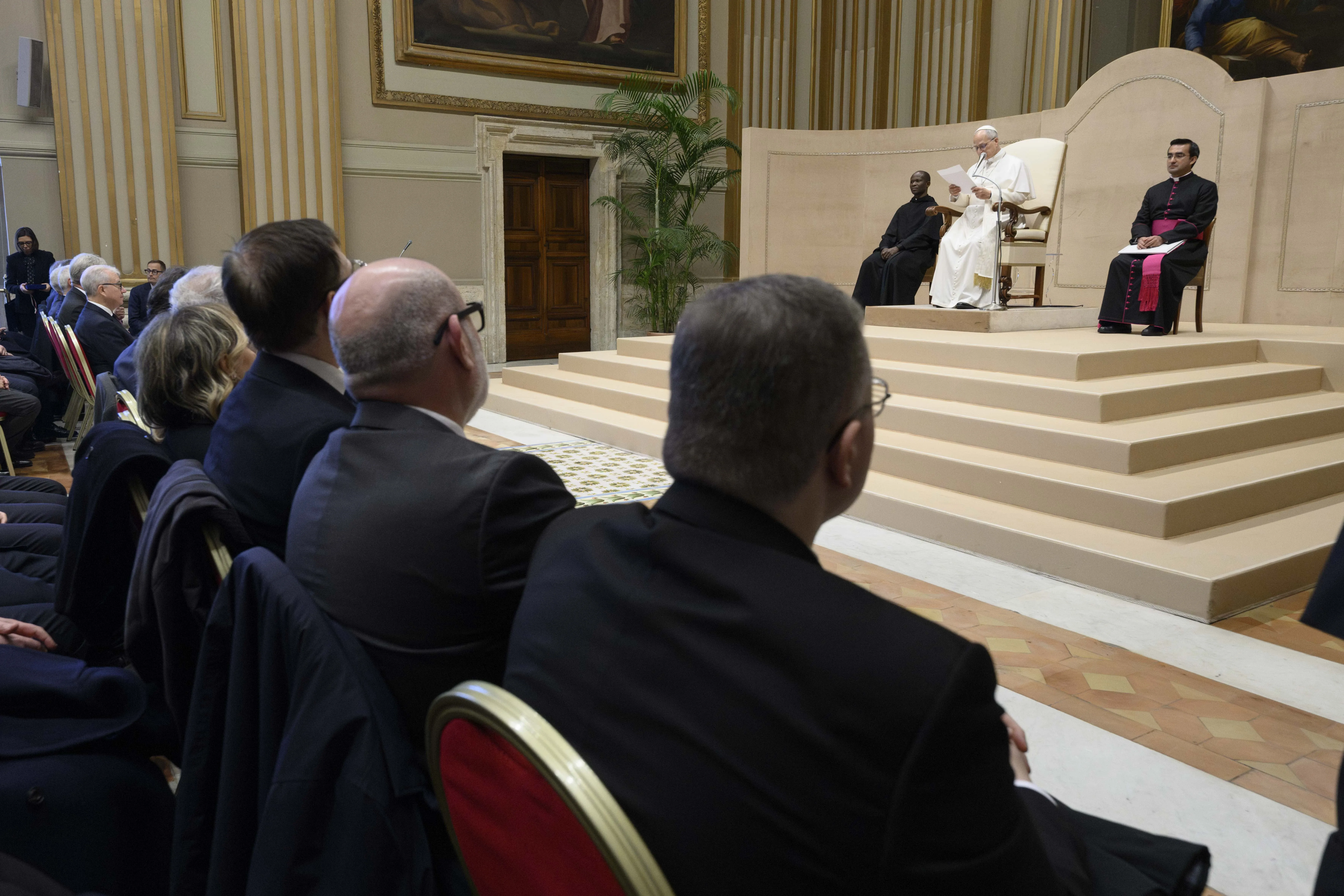“The first generation of Christians shared what they had, so that no one among them would be in need. They strove to make their community a welcoming home, concerned for every human need and ready to care for those most in need. It became customary to make voluntary offerings in order to feed the poor, bury the dead and care for orphans, the elderly and victims of disasters like shipwrecks,” he said.
The pope also said that the principles of the Church’s social doctrine served as the basis for a culture of care. He encouraged world leaders to use these principles as a “compass” to lead the way to “a more humane future in the process of globalization.”
He highlighted the principles of care for the dignity and rights of each person, care for the common good, care through solidarity, and care and protection of creation.
“This will enable us to esteem the value and dignity of every person, to act together in solidarity for the common good, and to bring relief to those suffering from poverty, disease, slavery, armed conflicts, and discrimination. I ask everyone to take this compass in hand and to become a prophetic witness of the culture of care, working to overcome the many existing social inequalities,” he said.
The World Day of Peace -- instituted by St. Paul VI in 1968 -- is celebrated each year on Jan. 1. The pope provides a message for the occasion, which is sent to foreign ministers around the world.
The pope’s message for the 2021 World Day of Peace is entitled, “A Culture of Care as a Path to Peace.” The pope published the message on his 84th birthday.
In his message, Pope Francis quoted a speech by Pope Paul VI given in 1969 to the Ugandan Parliament: “Have no fear of the Church; she honors you, she educates honest and loyal citizens for you, she does not foment rivalries and divisions, she seeks to promote healthy liberty, social justice, and peace. If she has any preference at all, it is for the poor, for the education of little ones and of the people, for the care of the suffering and abandoned.”
Pope Francis also pointed out the “educating people to care begins in the family, the natural and fundamental nucleus of society, in which we learn how to live and relate to others in a spirit of mutual respect.”
“Yet families need to be empowered to carry out this vital and indispensable task,” he said.
At a press conference presenting the peace message, Cardinal Peter Turkson, prefect of the Dicastery for Promoting Integral Human Development, underlined that Pope Francis decided to focus on a “culture of care” in this year’s peace message because of the coronavirus pandemic, which aggravated deeply interrelated crises involving food, climate, the economy, and migration.








